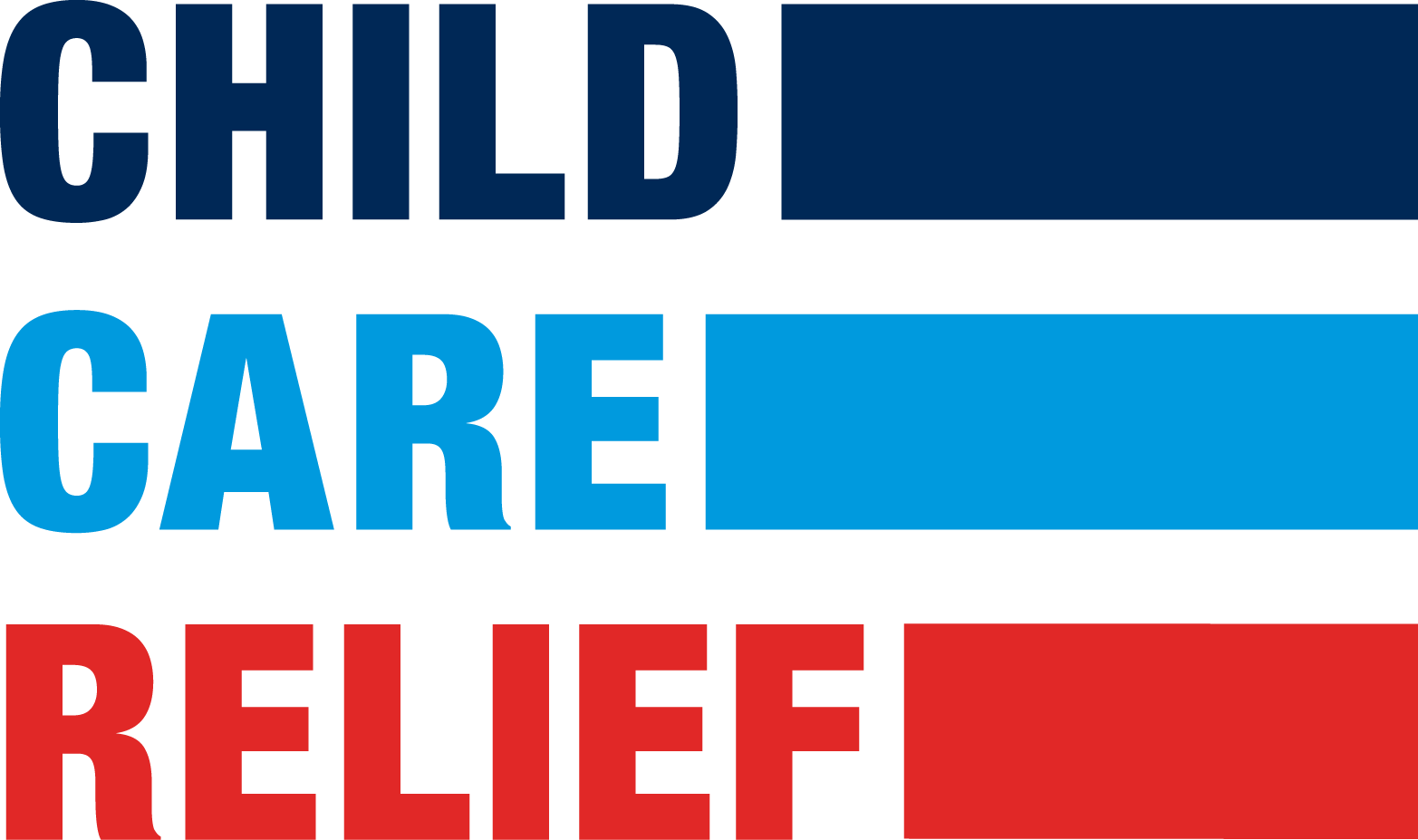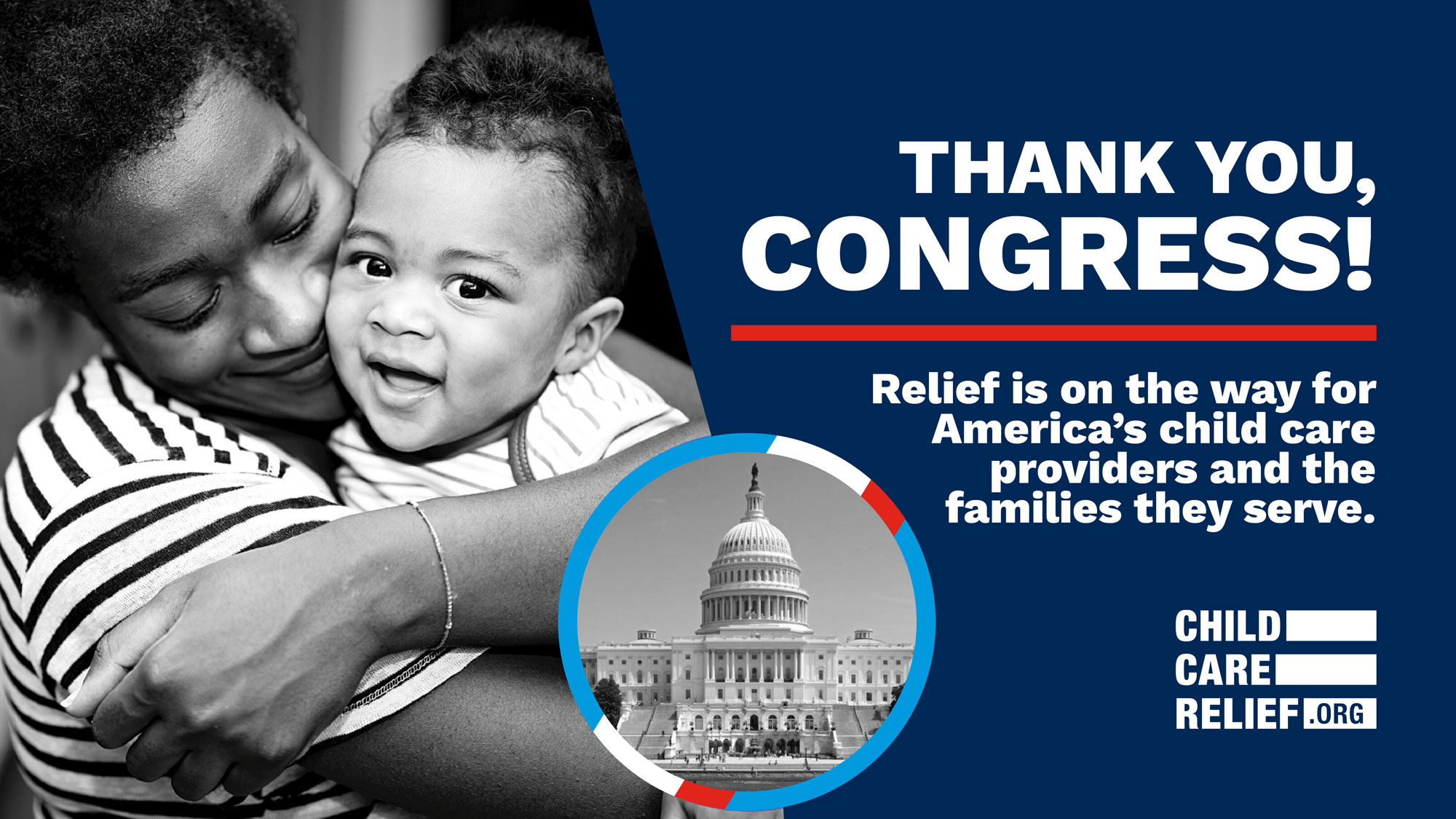
Child Care Leaders Urge Lawmakers to Prioritize Child Care Relief
WASHINGTON—This week, a broad group of organizations led by the Child Care Relief campaign, a coalition of the country’s leading child care, business, and child advocacy organizations, sent a letter to Congress urging lawmakers to continue to focus on child care, both in COVID-19 relief, and as our nation’s economy rebuilds.
The letter highlights how the support delivered by Congress in December provides important assistance for families and child care providers for approximately the next three months, but the pandemic will continue to have a devastating impact on child care for months to come.
“The needs of the child care community are great and have only grown through this pandemic. We must tackle these immediate needs in order to examine and address the broader issues facing the care and education of our children and in order to establish a cohesive system of care to support the working families of this country – a system that can be relied upon when so many other things are uncertain,” the organizations wrote.
The pandemic has shed a light on the critical role child care plays in ensuring the success of our economy. If lawmakers do not invest in child care now, economic recovery will be slowed as parents will be unable to return to work and industries will suffer. Addressing the ongoing challenges facing the child care industry requires ensuring there is ample child care supply and capacity, as well as affordable, high-quality options available for parents when the economy reopens. Priorities outlined in the letter include:
- Building Capacity: During the pandemic, the child care sector has lost one in six workers. Further, the pandemic has shed light on the significant inequities long suffered in the child care industry; virtually all child care workers are women, disproportionately women of color and immigrant women, who do not have adequate wages and benefits. We must focus on equitably building back the child care workforce and ensure sufficient resources are available to support, compensate, and retain these hard-working individuals.
- Building Supply: Licensed child care was in short supply even before the pandemic. In an August survey from the Bipartisan Policy Center, 44% of parents reported that the lack of child care resources was a barrier to their remote or in-person work. In addition to sustaining the child care programs currently struggling to stay open, we must also focus on growing supply and ensuring sufficient quality options are available to parents and communities across all child care settings.
- Direct Support to Families: Even before the pandemic, quality child care was out of reach for many families. Now, the economic toll on families is astounding. More than 800,000 mothers have left the workforce due to child care and school closures, impacting family economic security, lifetime earnings for women, and the economy as a whole. Mothers continue to shoulder the majority of family caregiving responsibilities, and mothers of color are most affected as they disproportionately work in many of the jobs considered “essential,” posing a significant impact on women’s employment and labor force participation. We must provide relief to families now and support the choices they make for their children as the nation recovers.
Since the onset of the pandemic, Child Care Relief has worked to ensure lawmakers provide much-needed relief funding for child care providers to help them remain open, cover operating costs, and provide safe, high-quality early learning and care for the children in their communities. To date, dedicated funding for child care has been included in every federal realief proposal from both Democrats and Republicans, including $10 billion in short-term relief passed by Congress in December. Now, the coalition continues to work toward the common goal of ensuring lawmakers address the immediate needs of the child care industry, as well as the broader challenges facing early learning and care beyond the pandemic.
Read the full letter to congressional leaders, including the list of signers, here. To learn more, please visit childcarerelief.org.
